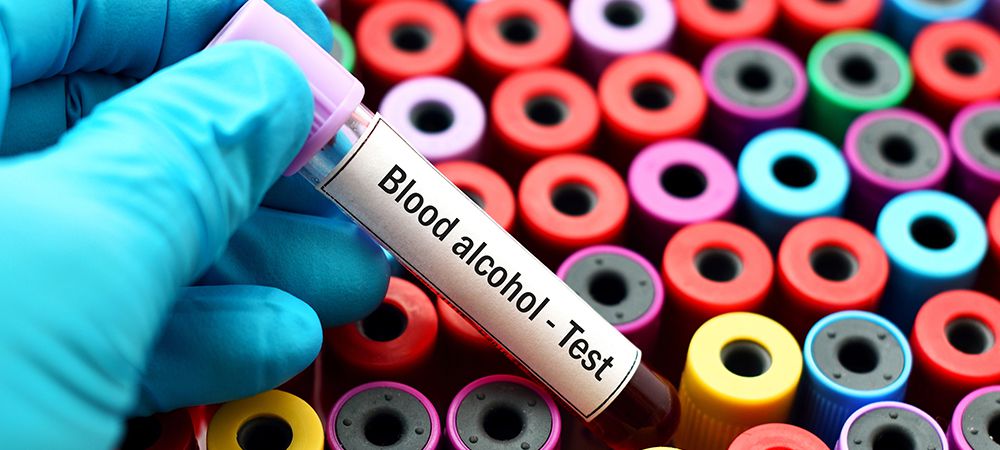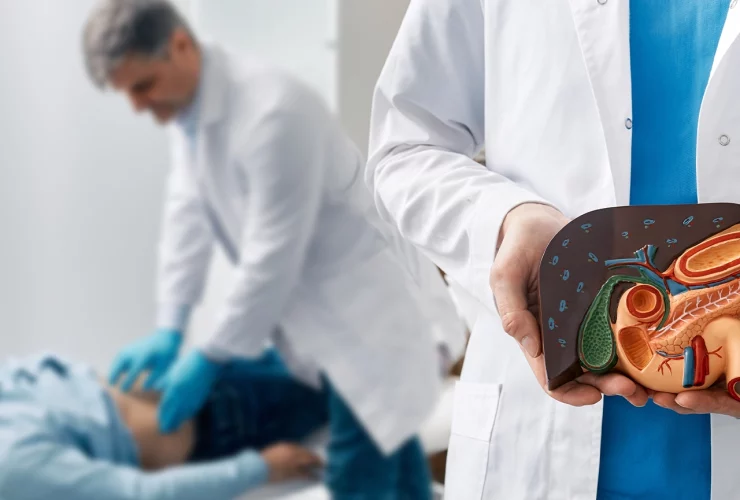Does It Take 40 Days for Alcohol to Leave Your Body System?
Many factors have a role to play as to how long it takes alcohol to leave your body. Your body’s natural metabolism determines how long alcohol stays in your body. The amount of alcohol you drink also influences how long it remains in your body.
If you’re going for an alcohol test, it is essential to know how long alcohol needs to leave your body. Generally, the rate at which your body metabolizes alcohol is usually about 20mg/dL.
The organ responsible for alcohol metabolism and removal is the liver. But does it take forty days for the liver to metabolize alcohol in the body?
Typically, your liver will metabolize alcohol within one hour. Where there’s usually a problem is when the liver has been metabolizing alcohol over time; it gets weaker.
Another factor that can affect how long alcohol remains in the body is that it’s not just about the liver. Alcohol reaches other body parts like the kidney, stomach and even your skin.
In this guide, we’ll discuss how long alcohol takes to leave your body. Here’s what you need to know.
How Long Does It Take Alcohol To Leave The Body?
Understanding how long alcohol will need to leave your body starts with its metabolism process. Alcohol is a liquid just like water, but it’s a depressant, so it dilutes quickly.
How long it stays in the body depends on the organs it passes through. Let’s examine each one of the organs.
Mouth and Saliva
You can only ingest alcohol by drinking it. And the smell of alcohol remains in the mouth for up to twelve hours. The only way to remove this smell is brushing your teeth. Alcohol particles can remain mixed in your saliva for a day or two.
Stomach
Alcohol goes straight into the digestive system after you drink it. The first place the alcohol reaches is the stomach where a reaction occurs due to enzyme action.
The enzymes in the stomach that break down alcohol are alcohol dehydrogenase and aldehyde dehydrogenase — both shortened as ADH and ALDH, respectively. These two enzymes aren’t present in every stomach, but they determine how long alcohol stays in the body system.
Women have lower ADH and ALDH levels in their body systems. That explains why most women easily get light-headed after taking tiny doses of alcohol.
Similarly, your frequency of alcohol intake can affect ADH and ALDH levels in your body. Consistent alcohol intake will reduce their levels and consequently their ability to dissolve alcohol.
But even with ADH and ALDH enzymes working at full capacity, not all alcohol will dissolve in the stomach. The stomach will only absorb only about 20% of the alcohol content before it goes to the liver.
Liver
The organ that has the primary influence on the timeline for alcohol to leave the body is the liver. The liver is responsible for the metabolism, circulation, and excretion of alcohol through urine.
A healthy liver can process and metabolize alcohol in less than one hour. For instance, if the last drop of alcohol enters your system by 4:00, your intoxication stops by 5:00. But if in between, you take some more alcohol, the timeline for it to leave your body increases
Before alcohol gets to your liver, it has possibly traveled around your body system. Right from its entry, a part of the alcohol goes to the blood vessels. These blood vessels supply your brain with alcohol, causing the reactions you may experience.
Another place alcohol reaches is the bloodstream. Once a drop of alcohol touches the bloodstream, it circulates around the body. That’s why alcohol doesn’t just affect your liver but also other organs.
For instance, let’s assume you have had a little too much to drink. You may notice that your hands may feel weak and your eyes become red. That’s because your bloodstream is circulating alcohol.
All these reactions occur because alcohol goes around the body. After going round the body, the alcohol loses its effect and goes to the liver. The liver then metabolizes and removes the alcohol from your body. A healthy liver will remove 90% of the alcohol in your system.
Skin and Kidney
Alcohol can’t remain in the body. One way or another, your body has to remove all the alcohol in it. And depending on the current state of the liver, it may be impossible for it to metabolize all the alcohol present in your body. As a result, the alcohol has to find other means to leave your body.
Two organs that become a factor in this situation are the kidneys and the skin. Your kidney converts alcohol to urine while the skin turns it into sweat. Although, these processes can take up to 5 days adding to how long it takes for alcohol to leave your body.
A urine test may not discover alcohol in your body 48 hours after drinking it. However a more complicated test, like the ethyl glucuronide method, will detect alcohol even after five days. If you’re about to undergo a urine test for alcohol, it’s better to wait for about seven days before taking that test.
A skin test for alcohol is a bigger problem. It can take up to three months for alcohol in your skin to leave. Usually, when your body excretes alcohol through your skin, some parts of the alcohol stay within your hair follicles. Therefore, a hair follicle test for alcohol will return a positive result.
Related Article: How Long after You Stop Drinking Does Your Body Heal?
Factors Affecting How Long Alcohol Will Leave Your Body
If you take large amounts of alcohol in quick succession, your body system won’t metabolize all the alcohol content. Therefore, the alcohol that refuses to leave your body acts as a poison, causing alcohol poisoning. In the case of alcohol poisoning, you should opt for alcohol addiction treatment immediately.
Away from intake quantity, other factors that influence how long it takes takes for alcohol to leave the body include;
Blood Alcohol Concentration
Blood Alcohol Concentration, shortened as BAC, is a measure of how much alcohol is in your blood. In some countries, they know it as Blood Alcohol Content.
If you’re in any legal alterations, the BAC is the quickest test performed by most countries. For instance, let’s assume the police stop you for overspeeding. You’ll most likely take a BAC test if they suspect you’re under alcohol’s influence.
For average drinkers, the BAC level is usually around 0.15%. At this BAC level, the alcohol in your body will leave in less than 24 hours. It’ll take longer for alcohol to leave your body with higher BAC levels
Type of Alcohol
The type of alcohol in question directly affects how long the alcohol leaves your body system.
According to experts, a standard alcoholic drink contains 0.6 ounces of alcohol.
For instance, a beer bottle weighs about 12 ounces of fluid, and alcohol within is only 5%. But for Vodka, on the other hand, taking only one short provides you with 40% alcohol. If you’re drinking wine that has between 10 and 12% alcohol, then one full glass will give you the required 0.6 ounces of alcohol.
If you stay within this range of alcohol, then the one hour required by the liver will work, as discussed above. But if you go above the required level, then you may need more time for alcohol to leave your body. The more alcohol you take, the more time you need to wait before it leaves your body.
Age
As you grow older, the speed at which your organs circulate and metabolize alcohol reduces. If your liver is processing alcohol for one hour, it may start to take longer when you grow older.
A major contribution to the timeline of alcohol at old age is the BAC. Older people have less water concentration in their bodies. Therefore, when they drink alcohol, their BAC levels will shoot up quickly. Consequently, this’ll affect how long it takes for alcohol to leave your body.
Gender
The male body has a different structure than the female body system in composition, hormones, and many other things. As such, the way alcohol will leave your body differs from how it leaves the other gender.
According to research, women take a longer time to absorb and metabolize alcohol. Consequently, if you’re a woman, you can expect alcohol to remain in your body for longer.
Food
With food in your stomach, alcohol spends more time in your stomach without moving to the liver. This time spent within the stomach reduces the impact the alcohol will have on you.
Food also helps you to reduce the BAC level. If you don’t eat food before drinking, your BAC level may increase drastically. Consequently, it’ll take longer for alcohol to leave your body.
Related Article: Does Alcohol Rehab Work?
Conclusion
Your genes, health, body composition are amongst the factors that determine when alcohol will leave your body. What you need to ensure is you’re drinking moderately, in a way that doesn’t affect you. But if you have a heavy alcohol drinking habit, you should seriously start considering alcohol detox programs.
If you feel you need any help whatsoever for your alcohol intake, you should get the support from the right source. Luckily, you don’t have to look far; you can try out our alcohol addiction treatment center.
Here at Inspire Change Wellness Centre, we have the experience, expertise, and professionals to help you walk your way out of addiction. Contact us today to discuss addiction treatment options.




